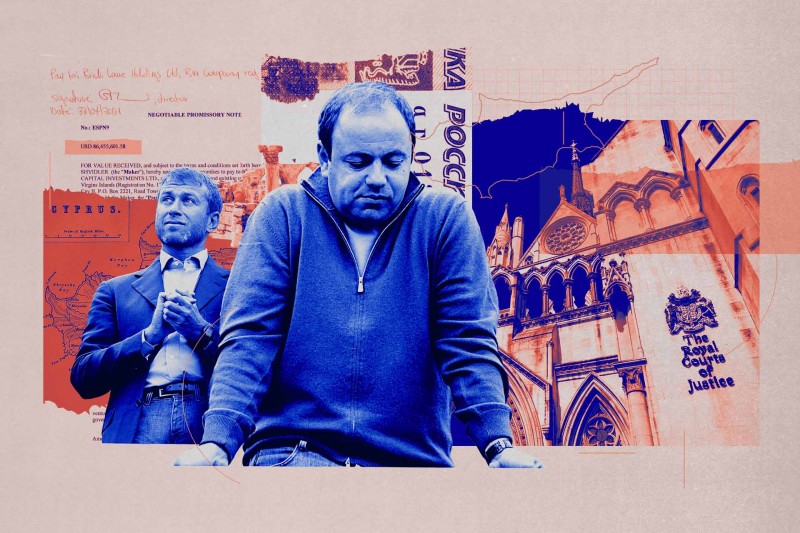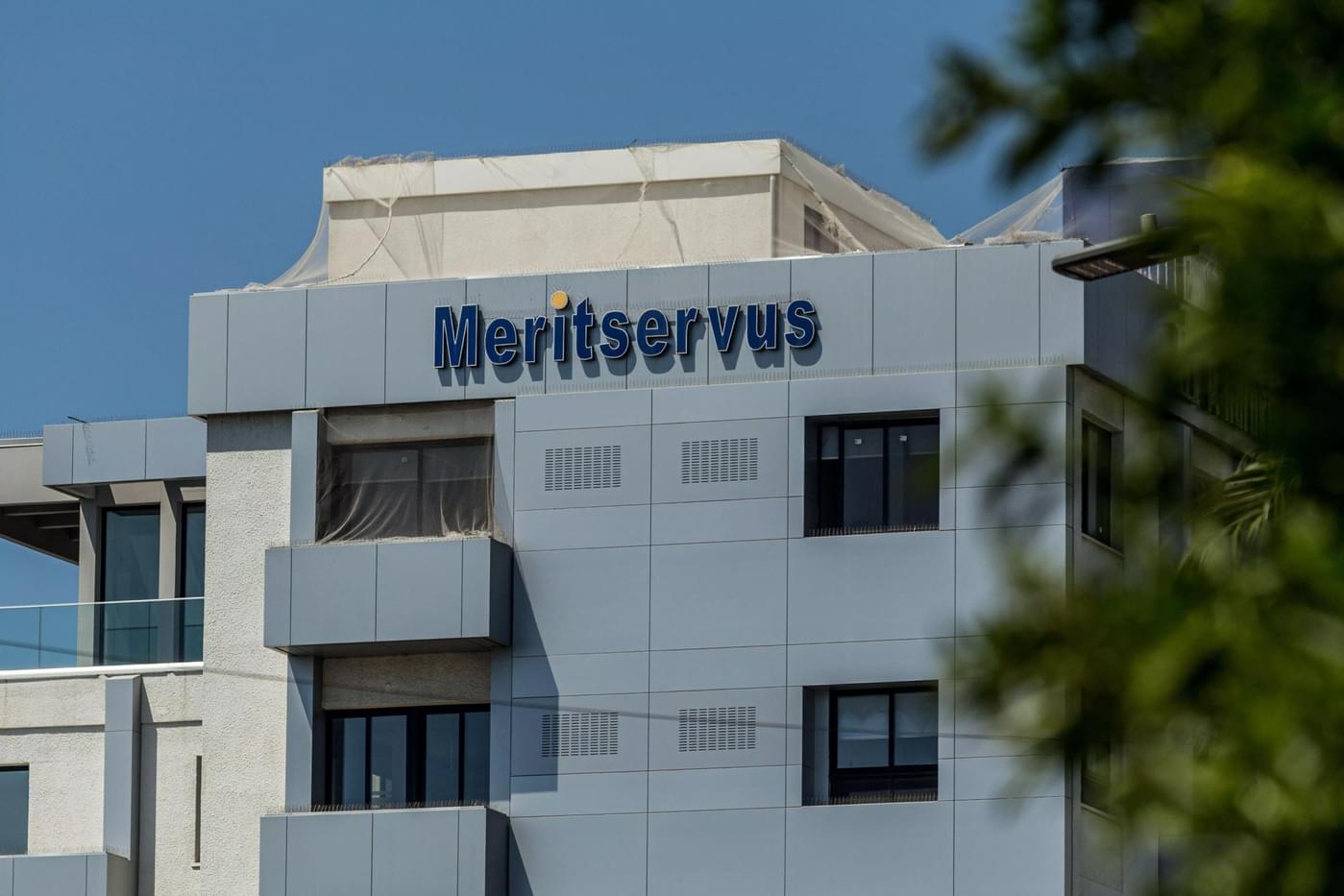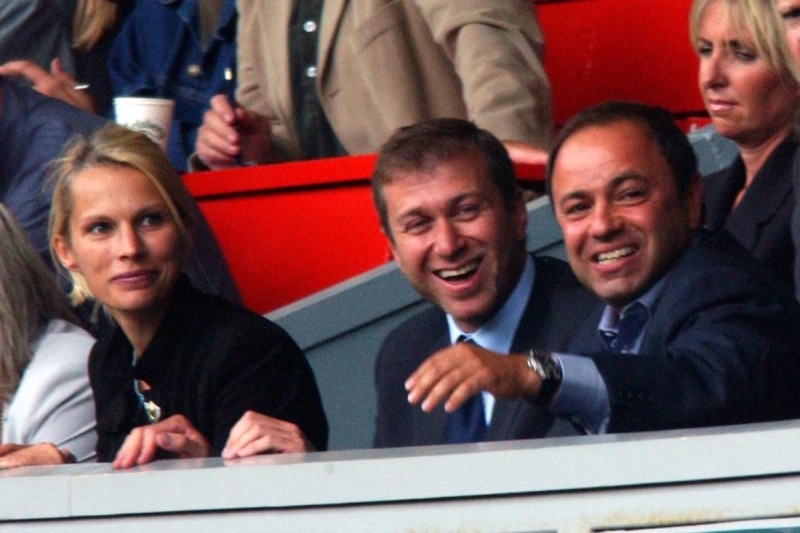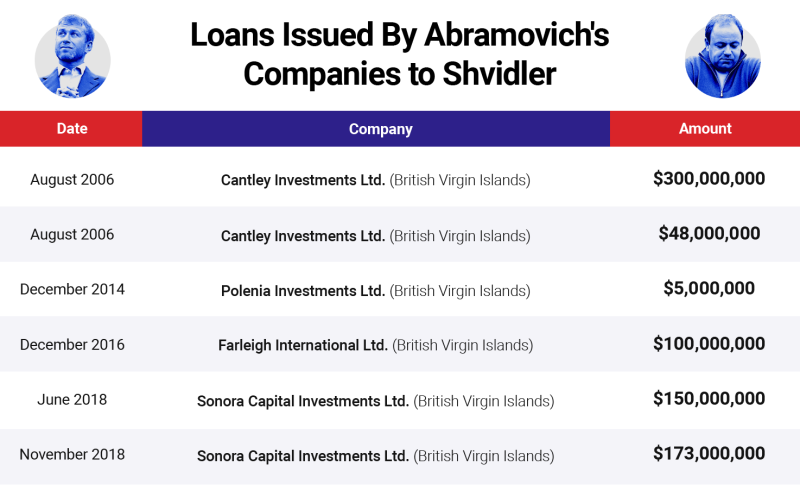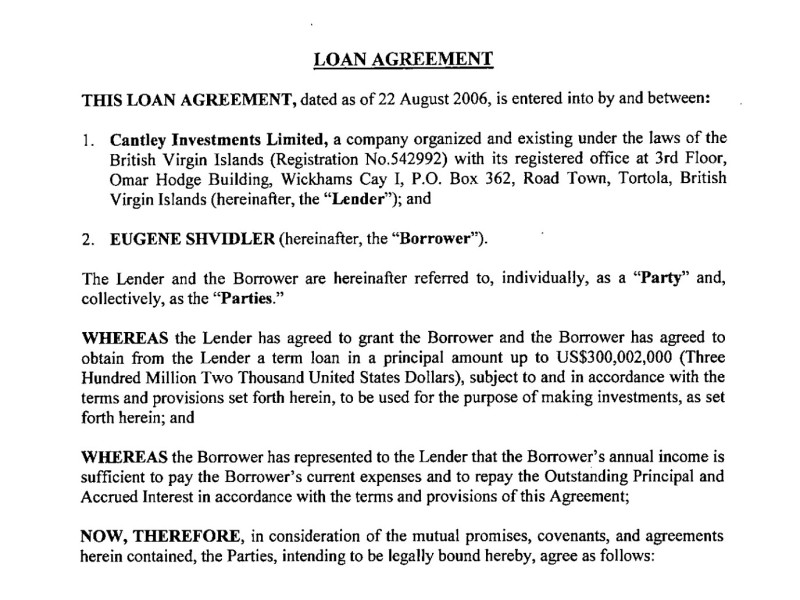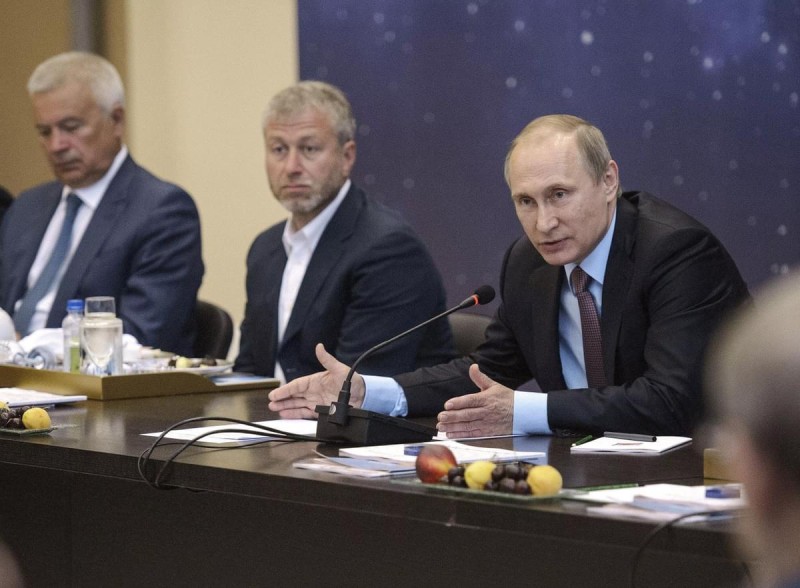A businessman who launched a legal case against the U.K.’s decision to sanction him over his ties to Kremlin-linked billionaire Roman Abramovich argues he never received any “financial or material benefit” from the relationship. But leaked documents reveal that Abramovich’s companies lent him hundreds of millions of dollars –– and then effectively turned that debt into a gift.
Last year, the U.K. government sanctioned Eugene Shvidler, a Soviet-born former oil executive, for profiting from his business ties to Abramovich, a tycoon the E.U. says has “long and close ties to Vladimir Putin.”
In February, Shvidler launched a High Court case challenging the sanctions against him, arguing that he “does not accept that he received financial or material benefit from Mr Abramovich” and that the sanctions were disproportionate and discriminatory.
In August, his case was dismissed, and last month, the Court of Appeal approved Shvidler’s application to appeal the judgment. He is currently awaiting a hearing date.
But despite Shvidler’s insistence that the sanctions against him are without merit, leaked documents obtained by OCCRP and its media partner The Bureau of Investigative Journalism reveal that Shvidler garnered substantial financial benefit due to his relationship with Abramovich. The files come from Cypriot corporate service provider MeritServus, which helped administer parts of Abramovich’s offshore empire. Offshore secrecy rules would have kept elements of the arrangements hidden were it not for the leak.
The documents show that Abramovich’s companies issued loans to Shvidler worth at least $637 million over a 12-year period from 2006 to 2018. The loans were often issued on friendly terms, sometimes interest-free. And in 2021 Abramovich’s trust appears to have gone even further, using multiple agreements to effectively transform more than $500 million in debt into a gift to the Shvidler family.
If Shvidler’s appeal is successful, it could set a precedent and encourage Russian oligarchs to try to overturn sanctions and unfreeze assets worth billions of dollars, said Helen Taylor, a senior legal researcher at the U.K. transparency campaign group Spotlight on Corruption.
"If Shvidler wins on appeal, then I think it means there is everything to play for and we'll see a lot of oligarchs trying to bring challenges," Taylor said. “People are watching for indications of how the courts will handle this area of policy –– all those with challenges in the pipeline must be nervously watching on.”
The leaked Meritservus files were obtained by the pro-transparency group Distributed Denial of Secrets and initially shared with OCCRP and the Guardian. This investigation is part of Cyprus Confidential, a global investigative collaboration led by the International Consortium of Investigative Journalists (ICIJ) and Paper Trail Media.
About the ‘Cyprus Confidential’ Project
Cyprus Confidential is a global investigation examining Russian influence in Cyprus, and how local service providers helped oligarchs and billionaires structure their wealth over the years preceding the 2022 full-scale invasion of Ukraine. The project is based on more than 3.6 million documents leaked from six different Cypriot service providers, as well as a Latvian firm.
The U.K. government sanctioned MeritServus and its founder, Demetris Ioannides, in April following an OCCRP report that the firm appears to have continued working for Abramovich even after Moscow attacked Ukraine in February 2022. MeritServus did not respond to questions sent earlier this year about whether it continued to provide services to Abramovich after he was sanctioned.
Following August’s ruling, Shvidler’s lawyer told OCCRP’s media partner the Guardian that the case raises “very important issues” and said Shvidler “hopes to have a hearing before the Court of Appeal at the earliest opportunity,” though he did not respond to subsequent questions.
Shvidler and Abramovich did not respond to emailed questions.
Old Friends
A Soviet-born graduate of the Moscow Institute of Oil and Gas who later obtained dual American and British citizenship, Shvidler was the president of Abramovich’s oil firm, OAO Sibirskaya Neftyanaya Kompaniya –– better known as Sibneft –– when it was sold for $13 billion to Russian state-owned industrial giant PJSC Gazprom in 2005.
The Sibneft deal made Abramovich one of the world’s richest people. Shvidler’s own wealth peaked at $1.9 billion in 2021, according to a Forbes estimate. But Shvidler’s friendship with Abramovich dates back almost 40 years, to the beginning of Soviet decline, according to the August judgment in his High Court case.
The two future billionaires met in the mid-1980s, but while Abramovich remained in Moscow as the Soviet Union lurched towards collapse, Shvidler pursued a business degree in the U.S. He then worked for the international consultancy Deloitte & Touche in New York.
By the mid-1990s, Shvidler was back in Russia as a finance executive at Sibneft. He became a key figure at Abramovich’s side as Sibneft acquired vast oil assets at cut prices amid the mass privatizations that transformed the Russian economy that decade. Sibneft’s lucrative acquisitions were thanks in part to the close ties that Abramovich and his business partner Boris Berezovsky cultivated with the Russian president at the time, Boris Yeltsin, according to a U.K. court judgment in a later case between Abramovich and Berezovsky.
Shvidler became a director or manager at several other Abramovich-owned companies, including Evraz Plc, a U.K.-listed steel multinational operating mainly in Russia, and the asset management firm Millhouse Capital. After Abramovich bought Chelsea FC in 2003, Shvidler briefly became a director at the soccer club and settled near London.
Two weeks after Russia’s full-scale invasion of Ukraine, the U.K. government sanctioned Abramovich, describing him as “one of the few oligarchs from the 1990s to maintain prominence under Putin.” The E.U. said Abramovich had “privileged access” to Putin and that “this connection with the Russian leader helped him to maintain his considerable wealth.”
Tom Mayne, a research fellow at Oxford University and expert in anti-corruption, said it was likely that Abramovich had maintained his position in part through proximity to Putin.
“The only way you can hold on to significant capital in Russia is through fealty to that regime,” Mayne said. “If you're involved in one of the major oil companies, as both Abramovich and Shvidler were, it's unquestionable that you only get to retain these positions and wealth through loyalty to Putin.”
Just days after sanctioning Abramovich, the U.K. government sanctioned Shvidler too, because of his association with Abramovich and his former non-executive directorship at Evraz. The U.K. noted that Evraz operates in a “sector of strategic significance” to the Russian government.
Following this blacklisting –– which included a worldwide freeze on his assets –– Shvidler launched his case against the sanctions at the High Court in London.
Shvidler said he “is not in any sense ‘associated’ with Mr Abramovich, and in particular he has not received a financial benefit from him (directly or indirectly),” according to a statement submitted in court. He argued that “my wealth is derived from my own investments.”
Shvidler also argued that he had no influence over Russian government policy, and said the effect of the sanctions had been “extreme.” He submitted two witness statements telling the court that his private jets had been grounded, he could no longer employ several household staff, and his children had been excluded from their fee-paying schools.
“My reputation has been enormously damaged and my ability to conduct business has been destroyed,” he said.
When Loans Become Gifts
Contrary to Shvidler’s claims in court that he had received no “financial or material benefit” from Abramovich, leaked documents suggest Shvidler’s investments were financed by substantial loans provided by Abramovich’s companies over more than a decade, beginning shortly after the 2005 windfall sale of Sibneft.
The first two loans, for $300 million and $48 million, were issued in 2006 by a British Virgin Islands firm owned by Abramovich. This company later transferred rights to the $300 million debt to another of his British Virgin Islands firms, Sonora Capital Investments, according to loan agreements obtained by OCCRP.
On the same day he received the $300 million loan, Shvidler acquired shares worth that amount in the holding company that owned Evraz, Abramovich’s steel company, the leaked documents reveal. Shvidler did not respond to questions about whether the loan was to finance his investment in Evraz.
In 2014, another Abramovich company agreed to loan up to $5 million for Shvidler to invest in Raine Partners II LP, a fund created by U.S. merchant bank Raine Group. That loan was unsecured, meaning it was granted without collateral that the lender could seize if it was not repaid. The debt was later transferred to the British Virgin Islands firm Sonora Capital Investments.
In 2016 — the same year Shvidler separated from his wife, according to his witness statement filed in the case against the U.K. government — a different British Virgin Islands-based company owned by Abramovich loaned him $100 million to finance a postnuptial agreement, the leaked files show. The loan was issued interest-free.
And in 2018, Sonora Capital Investments granted Shvidler two additional unsecured loans, together worth $323 million. The loans were “for such purposes as he decides in his sole discretion.”
Mayne, the anti-corruption expert, said the agreements were “very favorable to the loanee.”
“It seems to be a loan to somebody who is close to the beneficial owner of the loaning entities,” he said.
Taken together, these agreements mean that by 2019, Shvidler had accumulated some $637 million in debt to a single one of Abramovich’s offshore companies.
Shvidler received an even bigger favor from Abramovich in 2021, when Abramovich’s trust promised to transfer the company holding rights to most of this debt to Shvidler’s children through a complicated restructuring process revealed in the leaked files.
First, Abramovich’s Sonora Capital Investments signed four substitution agreements by which it swapped ownership of $545 million worth of debt, including interest, for promissory notes — legal documents in which the signatory, in this case, Shvidler, pledges to repay the lender. (While the agreements seen by OCCRP were only signed by Sonora Capital Investments and not by Shvidler, a subsequent agreement that depended on the substitutions being executed was signed by both parties.)
Next, the notes were transferred to a company in the British Virgin Islands called Brick Lane Holdings Limited, which was owned by Abramovich’s Zeus Trust Settlement.
All this had simply shuffled the debt between Abramovich’s firms, but an additional series of manoeuvers appeared to, in effect, turn this debt into a gift to Shvidler’s family, Mayne said.
In a legal document called a “deed of gift,” Zeus Trust promised to transfer the shares in Brick Lane Holdings — which by now owned the rights to the debt worth $545 million (including interest) — to Shvidler’s children. The transfer meant they would eventually inherit a company worth over half a billion dollars at the time of the pledge — and if the debt was still outstanding by then, they would have the right to collect on it or to forgive it.
Abramovich’s trust also handed over the management of Brick Lane Holdings to a company managed by Shvidler. According to a document called a “deed of appointment,” Zeus Trust “irrevocably” appointed the Delaware-based S6, LLC, whose managing member was Shvidler, as its proxy and attorney, authorizing the firm to exercise shareholder powers and voting rights “in any manner [it] sees fit.”
These moves appeared to turn the original loans into a gift, suggesting “a very close personal relationship between the beneficial owner of the companies loaning the money and Shvidler,” Mayne told OCCRP after reviewing the documents.
Offshore Opacity
It is unclear if U.K. authorities were aware of the information about the loans in the leaked files obtained by OCCRP, but they appear to contradict Shvidler’s claim in court that he did not financially benefit from his relationship with Abramovich.
The complexity and opacity of the arrangements meant the extent of Shvidler’s links to Abramovich could only be discovered via leaked documents. The government’s case that Shvidler derived financial benefit from Abramovich relied only on public information about his earnings at the Kremlin-linked tycoon’s companies.
This is “indicative of the problems that investigators and law enforcement face” when looking into offshore deals, said Mayne.
“It involves so many different jurisdictions [and] involves going to various places and trying to get beneficial ownership information which might not be forthcoming,” he said.
Still, the High Court judge, Neil Garnham, found the government’s case sufficient to dismiss Shvidler’s lawsuit, and the sanctions against him remain –– unless he succeeds in his appeal.
The new findings from Cyprus Confidential cannot influence the outcome of the appeal, according to Taylor of Spotlight on Corruption.
“The court can't look outside of what the government has put forward,” Taylor said. “The court will look at the reasons the government gave for designating Shvidler and look at whether that was a reasonable thing for a decision maker to do.”
She added that Shvidler was not legally required to present information to the court about the loans he took from Abramovich, since the loans were outside the scope of the government’s allegations.
Jamison Firestone, a U.S. attorney who founded the law firm Firestone Duncan in Moscow in the 1990s, said Shvidler was clearly a beneficiary of the system of oligarchy which Putin built around him.
A Russian employee of Firestone’s firm, Sergei Magnitsky, was tortured and died in prison in 2009 after blowing the whistle on a $230 million government tax fraud. Firestone fled Russia after Magnitsky’s arrest. Since then, he has advised on sanctions regimes against kleptocratic states and how to deal with their frozen funds.
“Here’s a guy who definitely made his money because of his relationship with Abramovich and Abramovich’s close, cozy relationship with Putin,” Firestone told OCCRP. “You don’t receive benefits from the Russian government unless you’re useful to them.”
